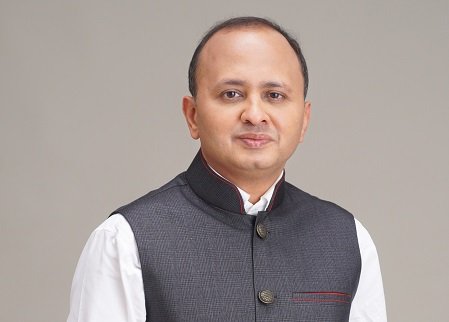By Rusen Kumar
Given the growing world population, the farming community is under intense pressure to feed the people, especially in a place like India, where malnutrition has always been on the rise. This pressure is not only a result of the financial challenges being faced by the marginal and smallholding farmers, but also certain inefficiencies in farming, which can easily be resolved with the introduction of technology led sustainability and innovation in agriculture.
With an aim to revive innovation and technological entrepreneurship of agriculture sector, Bayer and Agriculture Development Trust (ADT), Malegaon recently signed an MOU.
Suhas Joshi, Head – Corporate Social Responsibility of Bayer shared his views and vision on transformative impact agricultural technologies, capable of creating and how the company in partnership with ADT plans to support agri-entrepreneurs to catalyse this transformation.
What is the objective behind partnering with The Agricultural Development Trust?
ADT, Malegaon have signed the MoU to work together to create an ecosystem for nurturing AgTech innovation and development. We will collaborate to offer opportunities to explore technological solutions for the benefit of small and marginal farmers.
Elaborate on the role technology can play in transforming Indian agriculture.
In this age and time, investments in innovation and technology play a vital role in transforming Indian agriculture. Precision farming using sensors, GIS-based (geographic information system) soil, weather, and water data to guide farming decisions, mobile internet-based farm extension and market information services combined with mechanization will result in generating more value in the farm sector.
What are some of the challenges Agriculture entrepreneurs are facing and how can this partnership help in bridging the gaps and overcoming the challenges?
As part of the MoU, Bayer and ADT will hold scouting events for agricultural innovations, food, life sciences and related sectors such as data sciences from all over India. Additionally, they will identify and shortlist modern, scalable and suitable agricultural technologies for further development and promotion.
The idea is to provide academic expertise to mentor agricultural technologies, promote institutional exchanges by inviting experts from partner institutions to participate in a variety of project related activities and professional development.
The partnership with ADT is also to support agri-entrepreneurs in testing their technology inside laboratories as well as on the farmer’s field, making business plans, providing insights into market economics, marketing, assisting with supply chain inputs and access to market. In addition, the MoU will provide access to need based legal and IPR advisory services for eligible incubatees.
Highlight some of the other initiatives that Bayer is driving to advise and support the smallholder farmers.
Nearly 80% farmers are smallholders who farm on less than two hectares of land. They are more vulnerable to challenges such as lack of finance, adverse climate impacts, irrigation management, pests and crop diseases, rural migration and fluctuating commodity prices. Because of these challenges, they are able to realize only a fraction of their potential productivity. We believe that empowering smallholder farmers is crucial to achieve food security. At the same time, we want to increase their livelihoods. But first, smallholders need to be fast-tracked towards achieving economic viability, so that they can earn incomes from their farmland and not just use it as a means to survive.
Bayer India’s Crop Science Division runs initiatives such as Bayer Labhsutra and Bayer Food Chain Partnerships, which focus on imparting good agricultural practices to help smallholder farmers make their produce more marketable and hence profitable. In July 2018, Bayer along with other global and local partners set up the Better Life Farming alliance to partner smallholder farmers in Varanasi, Uttar Pradesh to enhance their yields and income in green chilli farming. Better Life Farming is an example of how a collective effort and commitment to innovation, sustainability and social responsibility can contribute to a better life, also for their local communities.
Can this partnership help create opportunities in the field of agriculture for the Indian youth beyond just farming, if yes, how?
Yes. The partnership will facilitate agro-technology commercialization by promoting and supporting agribusiness ventures. The idea is to benefit famers through new markets, products and services. The scope also includes creation and provision of infrastructure facilities and laboratories. We hope this would help nurture the development of new ideas related to farming and more.
Disclaimer: The thoughts captured in the interview is solely that of the interviewee. The views expressed by the author in this feature are entirely his own and do not necessarily reflect the views of India CSR and its Editor.
Terms Conditions: India CSR does not permit other websites/Agency to copy or reproduce or reprint the above article in any form.







